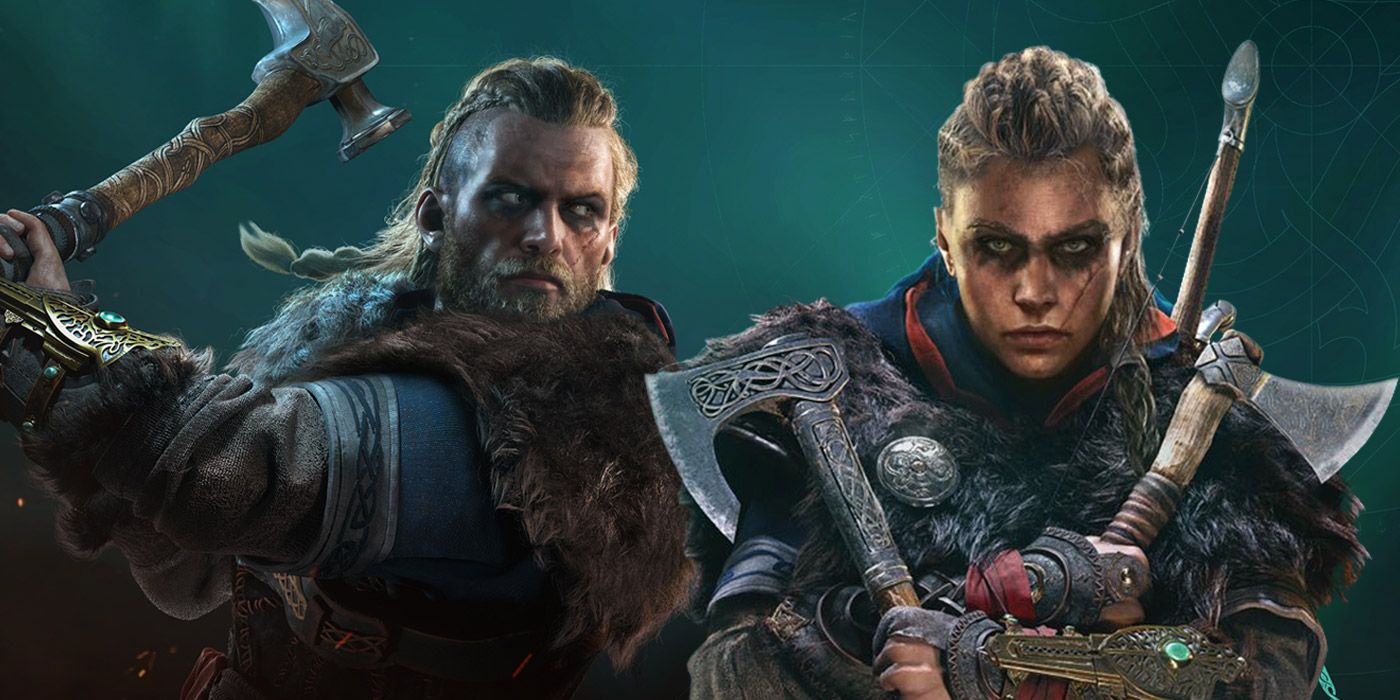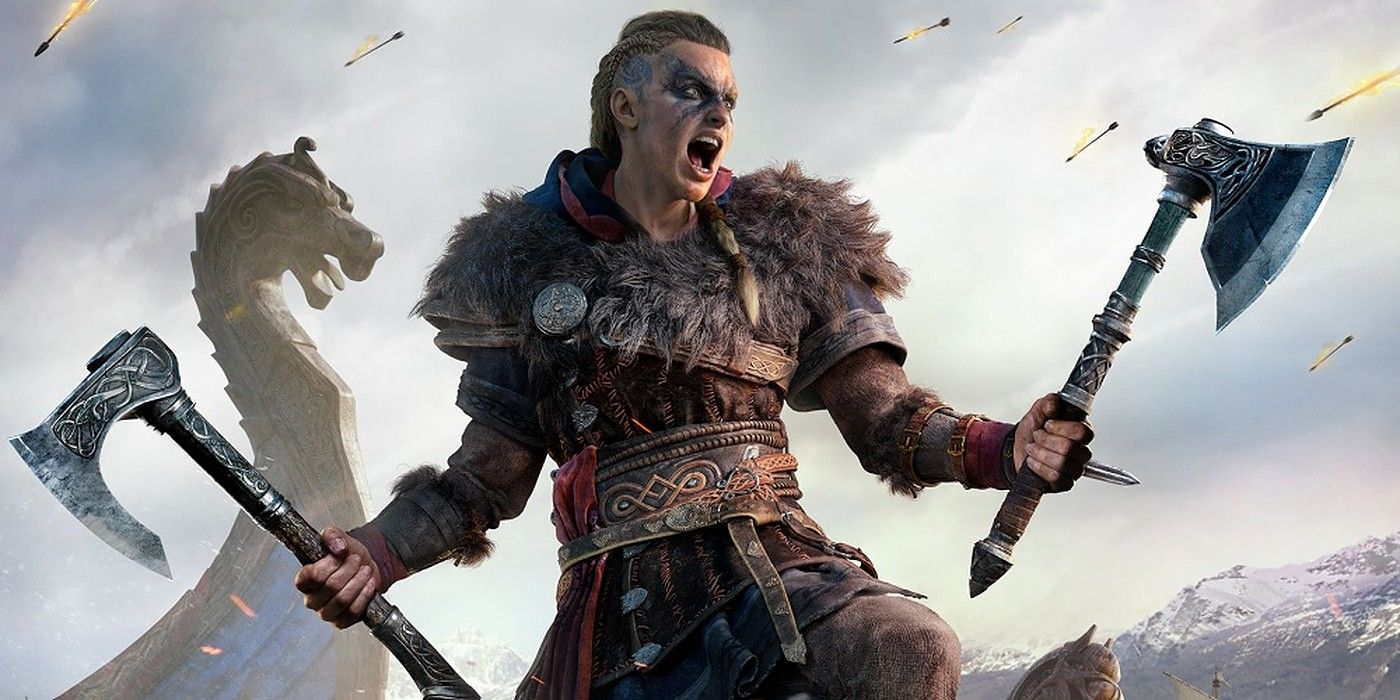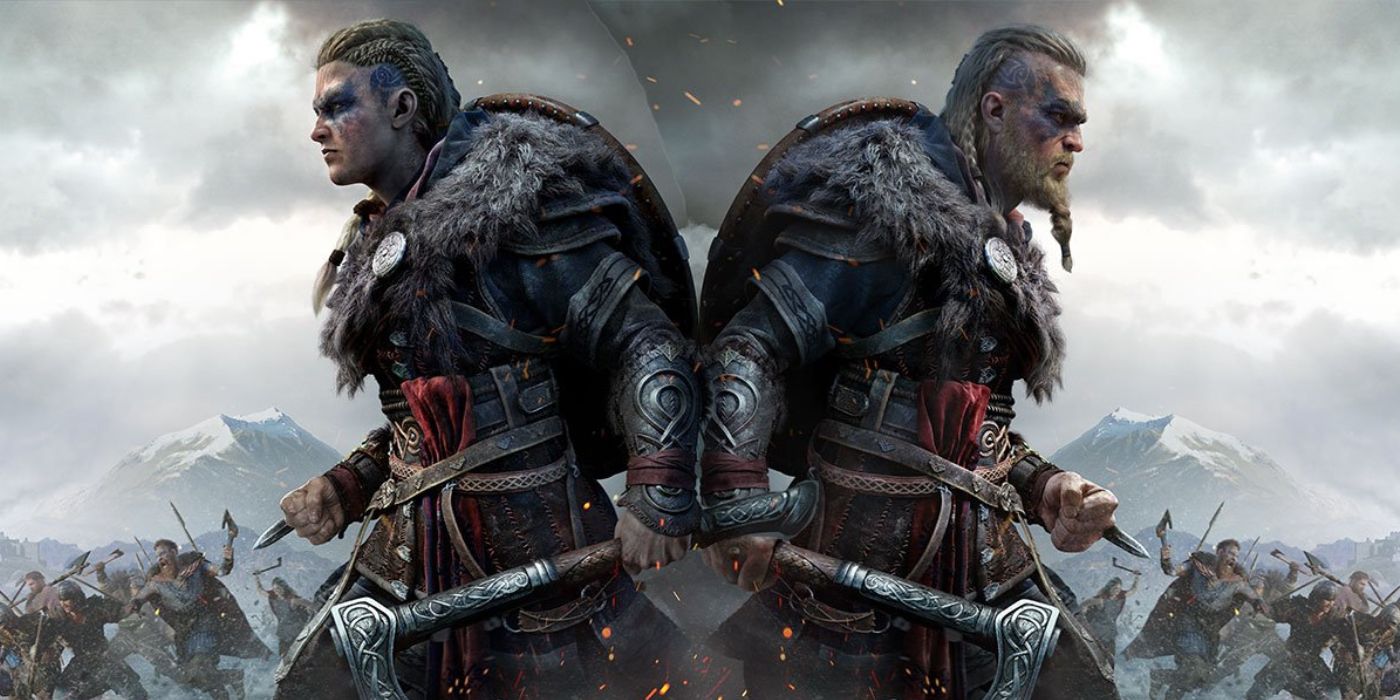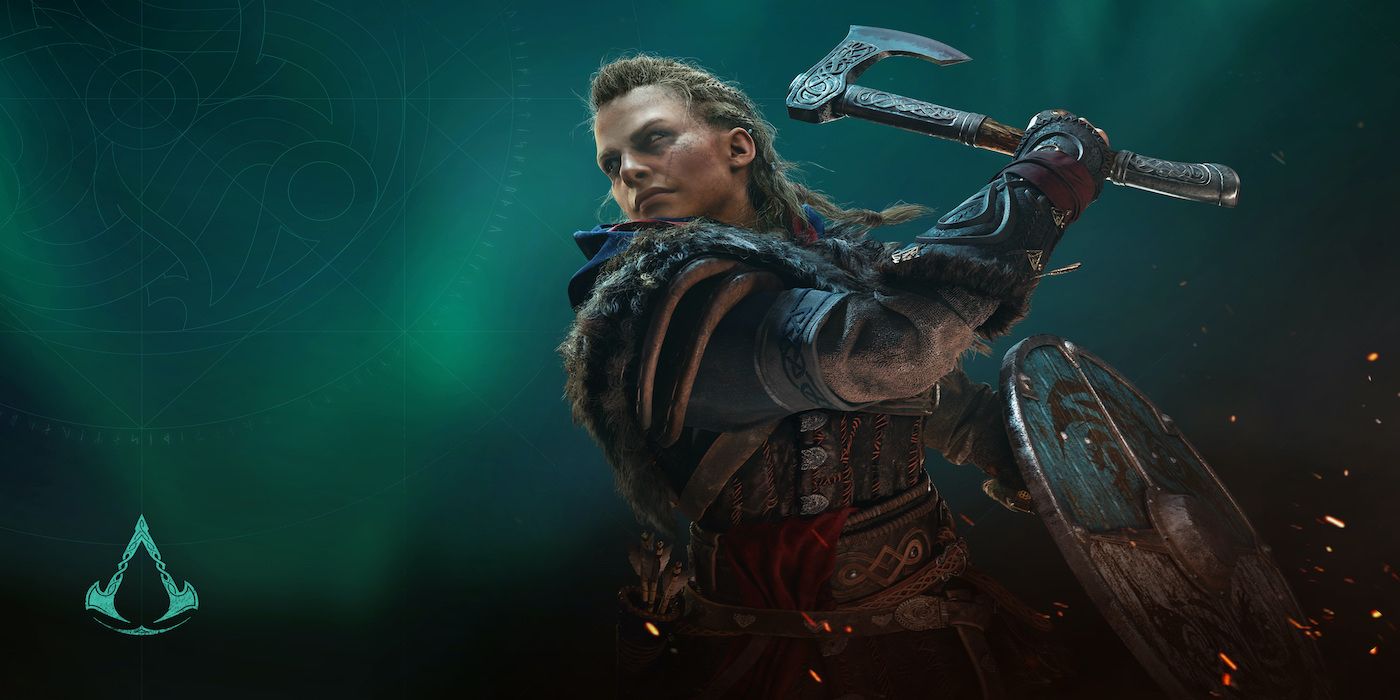Despite a few shortcomings, Assassin's Creed Valhalla manages to check off a lot of boxes among the community. The return of the insta-kill hidden blade, social stealth, and more make the game feel more like traditional AC games than the past two entries, while the modern-day story has hit a high it hasn't since the days of Desmond.
One head-scratcher for the game came before release, though: the fact that Ubisoft regarded both male and female Eivor as canon in AC Valhalla. Theories went wild in the community as to how this could happen, ranging from Eivor being some form of DNA chimera to not even being human. The actual explanation, though, falls short and underminess every pre-release explanation as to why this may be. MASSIVE SPOILERS AHEAD for Assassin's Creed Valhalla.
PLEASE NOTE: The remainder of this article, for the reasons outlined below, will refer to male Eivor as male Eivor and female Eivor simply by her name.
A Brief History of Mistreatment Regarding Female Assassin's Creed Characters
Before diving into the treatment of Eivor in Assassin's Creed Valhalla, it must first be recognized that Ubisoft did not go into the release of this game scandal-free. Ubisoft has been rocked all summer by misconduct claims, sexual or otherwise, and this led to the dismissal of several higher-ups, including Chief Creative Officer Serge Hascoet. As CCO, Hascoet had the unconditional and complete power to green light or end any project but also, by all reports, held the belief that "women don't sell." This mentality has directly impacted multiple Ubisoft games, especially Assassin's Creed games, and has led to a toxic workplace by multiple accounts. Ubisoft appears to be working on fixing this culture, but it should be noted that the fruits of this labor have not been proven yet
To be clear, some have argued that Hascoet is just one man and that it doesn't reflect on Ubisoft, but this is reductive at best. Many at Ubisoft did not support Hascoet, but his abuse of power is blatantly clear in this franchise and is a reason that Dragon Age creative director Mike Laidlaw's King Arthur game was canceled. Laidlaw was a big-name get for the company but was not there for very long, showing just how much Hascoet could strong arm anyone. In terms of Assassin's Creed, the following are some of the known incidents that were the result of Hascoet's mentality and the Ubisoft work culture:
- Kassandra was supposed to be the sole lead of Assassin's Creed Odyssey, with Alexios being a forced addition.
- Aya's role in Assassin's Creed Origins was severely diminished.
- The VA behind Evie for Assassin's Creed Syndicate was subject to sexism at the company
- Elise could have been playable in Assassin's Creed Unity, but wasn't.
Because of these revelations being relatively recent, it was all but unavoidable that it would leak over into Assassin's Creed Valhalla as well. For example, most (read nearly all) of AC Valhalla's marketing and trailers focused on male Eivor, and this is despite "both" being canon. It would seem that the general baseline for "why" both are canon (explained in full in the next section) was something decided long ago, and as a story-telling device, it's interesting, new, and fun to see. However, it undermines itself all at the same time, and instead of the simple, most obvious answer as indicated by Assassin's Creed Valhalla itself, it seems Ubi had to shape a particular narrative around an otherwise innocuous story-telling device.
How AC Valhalla's Male and Female Eivor are Both 'Canon'
Early on in Assassin's Creed Valhalla, players learn that the animus has trouble deciphering a male Eivor from Eivor for some reason. As such, the "canon" playthrough is the Let the Animus Decide option, in which players will play Eivor as well as male Eivor. Here's the thing: allowing the Animus to decide means players are mostly (read nearly always) Eivor, not male Eivor. They only play as male Eivor during the Asgard and Jotunheim sections of the game where the memories being explored are not Eivor's memories.
As players learn, the Isu who inspired Norse myth survive "Ragnarok" (or the Great Catastrophe) drink a special mead that see them later reincarnated. Eivor is a reincarnation of Odin, meaning some of his Isu DNA and memories live on in her. In fact, in the simplest terms, the Let the Animus Decide option doesn't have a male Eivor—it has a separate character in his entirety, Havi/Odin. Instead of there really being a choice between characters, players essentially take on two roles, closely connected, throughout the story. Eivor has Odin's memories, which is no different than when Layla plays through Bayek's or Alexios' memories. Layla is not Bayek. Layla is not Kassandra. Layla is not Alexios. Eivor is not Odin.
Yet somehow, male Eivor is the character portrayed on the front of the game (there is a reversible cover, but it's noteworthy that male Eivor is the one showcased and shipped on front). This is despite Assassin's Creed Valhalla's canon option—Let the Animus Decide—irrevocably proving that Eivor is the canon character. After all, many were confused on the initial reveal because Eivor is a female name, not a unisex name. On top of that, while the game almost never address Eivor's full name, she has one. According to a document found in-game, her brother is Sigurd Styrbjornsson, meaning Son of Styrbjorn. Eivor's full name is Eivor Varinsdottir, meaning daughter of Varin.
Assassin's Creed Valhalla doesn't whisper it. Assassin's Creed Valhalla doesn't state it. Assassin's Creed Valhalla screams Eivor is a woman, and this begs the question: why not just say Eivor is canon, why not just say that there are times where players are not Eivor, and why go through the convoluted argument that both genders are canon. Writing "female Eivor" is the equivalent of writing female Mary, female Elizabeth, female Susan, and female Jessica, and as a result, it belittles Eivor's identity.
Truth is, Male Eivor Doesn't Canonically Exist, and That's Okay
The game itself makes clear that male Eivor does not exist—there is Havi/Odin and there is Eivor. The two are intrinsically connected but not the same, just as the modern-day characters who relive memories through the Animus are not the past characters. Yet, instead of opting for differing names and characters like Alexios and Kassandra, instead of opting for the simple statement that Eivor is canon, and instead of putting the true story of Assassin's Creed Valhalla front and center, the game markets and showcases a false character.
Of course, there is nothing wrong with playing and choosing male Eivor. Because of the intrinsic connection between Odin and Eivor, it makes sense for the two to look similar, even despite being different genders canonically. The same applies to Basim/Loki and Sigurd/Tyr (although they are the same gender), and as a choice for a storytelling device, it is interesting. That does not erase the fact that he is not canon, that he does not canonically exist, that Eivor is canon, that Havi/Odin is also canon, and that the argument for both genders being canon here doesn't hold water.
At the end of the day, Assassin's Creed Valhalla markets and puts a non-existent character front and center over its true protagonist, Eivor. Everything from documents in the game to the "Let the Animus Decide" option states that Eivor is canon and Eivor is a woman, and only the marketing gives her the short end of the stick.
Assassin's Creed Valhalla is available now for PC, PS4, PS5, Stadia, Xbox One, and Xbox Series X.




